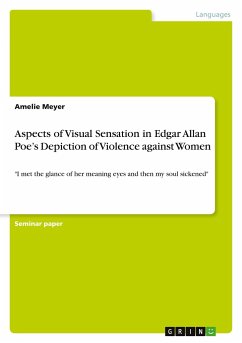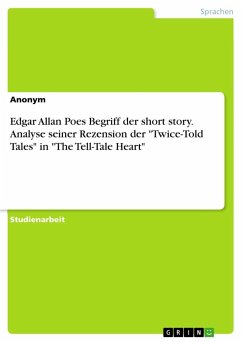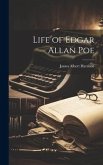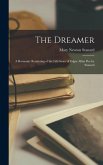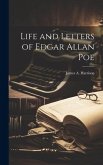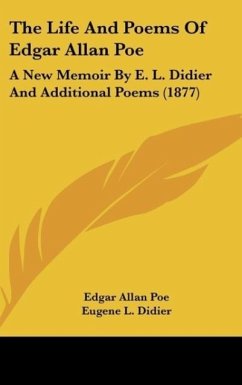Seminar paper from the year 2012 in the subject Literature - Modern Literature, grade: 1,3, University of Göttingen (Philosophische Fakultät), course: Beyond Principle and Philosophy: Edgar Allan Poe as an American Author, language: English, abstract: In this paper, it will be argued that this emphasis on visual sensations is directly related to the violence against women as it exposes the murderers' motives and drives, their course of action as well as their attempt to then distort the reader's view of the truth in order to cover their involvement. For the discussion of this thesis Poe's short stories "The Oval Portrait," "Morella", "Berenice" and especially "Ligeia" will be considered.Many of Edgar Allan Poe's short stories deal with a fixation on dying women as he famously states in "The Philosophy of Composition: "death, then, of a beautiful woman is, unquestionably, the most poetical topic in the world" (1621). The death of those women is often violent as they are murdered by a male character as a result of an "emotional estrangement between the male protagonist and a fated female" (Kennedy 118). Interestingly, the characters and the circumstances surrounding those deaths are described with an emphasis on the "lexical field of sight" (Marín-Ruiz 58) so that already "a cursory exposure to Poe's fiction leaves a strong impression of his recurrent emphasis on the eye" (Scheick 80). Detailed accounts of eyes, glances, gazes and vision keep reappearing in the selected stories, so that sight becomes one of the key elements of the tales.
Hinweis: Dieser Artikel kann nur an eine deutsche Lieferadresse ausgeliefert werden.
Hinweis: Dieser Artikel kann nur an eine deutsche Lieferadresse ausgeliefert werden.

